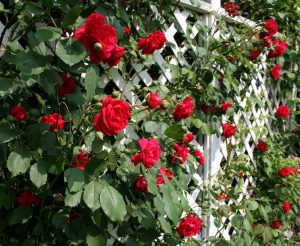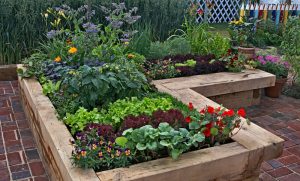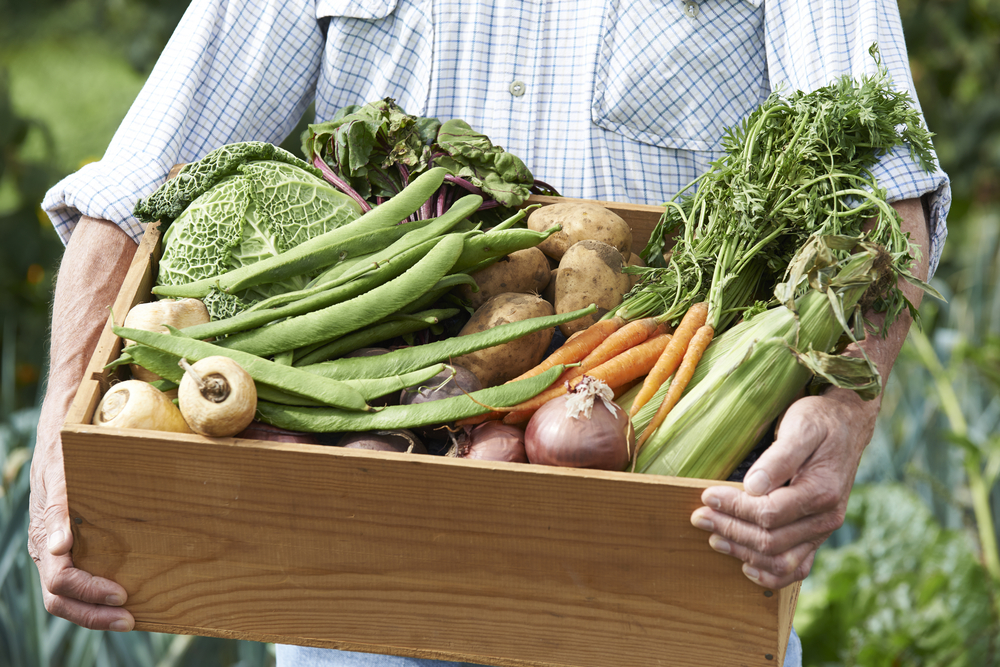National Allotment Week – Bringing it Home
It’s National Allotment week 10th – 16th August, so why not bring the allotment feel to your garden?
Not everyone has the delight of having their own garden, and for those who love to garden, an allotment is the perfect solution! When it comes to those of us with a garden, some of us aspire to have that allotment feel. The joys of growing your own vegetables and fruits away from the main garden, nourishing the plants to nourish yourself, not only physically, but mentally too.
Choosing your area
When creating a space in your garden to call your own home allotment, there may be a few things you want to consider.
Firstly the size of the area. Take into consideration what it is you are looking to grow, and how much space you have in your garden. Smaller spaces will either limit the variety you can grow, or reduce the amount of space outside the allotment. If you aim to only grow one or two produce, smaller spaces are great, there’s less weeding to be done between your plants.
The soil condition will also need to be considered. Some areas of the UK have better natural soils than others, some have a higher clay content while others have nutrients that will help even the hardest produce to grow. This can be helped by the introduction of different composts and soils to the area, but it may still be limited to which will grow to its full potential.
Alongside the soil condition, you may also need to look at the sunlight and shade that the area gets. Each plant will have different preferences, it’s always best to do your research first.
Creating your garden allotment
Depending on how separate to your garden you want your allotment to be can change how you prepare the area.
If you are looking to completely separate the area, trellis can create a great false wall. The use of trellis can be either aesthetic or functional. If you want the area to look appealing from the outside using climbers, such as climbing roses, can create a stunning divide. If you are looking for the dividing trellis to be more practical there is a selection of both fruits and vegetables that will grow up it, including cucumbers, peas and grapes.

Some people will prefer to have just a soil area in the ground to grow from, others can opt to lay sleepers around the area to keep the soil together. If you are opting to have the allotment as a main part of your garden a great idea is to lay a patio around the area (it’ll also help you to contain the growing to a specific area).
Allotments are not just for ground level, they can also be brought up to a level to suit the gardener. Introducing raised beds to the area can allow more people to enjoy the pleasure of gardening, without the need to rely on others.
What can I plant?
Your selection of growing is entirely up to you. Whether you are looking for the easiest to grow, or something that the family will enjoy, growing is always personal to you.
If you are looking for the easiest plants to grow in your allotment you’ve probably already heard that tomatoes and strawberries should be high on your list. But if you are looking for something a little different, cucumbers, blackberries and cabbages are also easy to grow.
People with successful allotments tend to find that they have more than an adequate supply of some types of fruit and vegetables. That’s why we recommend taking into consideration what your family and friends eat more of. This way you’ll find yourself with less waste, and more happy campers.
Caring for your patch
Caring for your allotment is no different to caring for your garden as a whole. Some produce will require more care than others, some will require hardly any input at all. You may have already inquired into the care of the plant when you purchased it, in which case, you will already know how the plant was cared for before it got to you. However, some people will have differing opinions on raising the same plants. This is usually from personal experience, and you may find that suggestions from others won’t be as successful for you. Trial and error can sometimes be the best advice.

What happens if nothing grows?
Never be disheartened by your first attempt not going quite as planned. We can only learn by trying and moving forward from our efforts.
When you find that your plant hasn’t grown the best thing you can do is your research. Whether you have a look online for a cause or you pop into your local garden centre you should be able to troubleshoot and find the best solution moving forward. If you find an issue early enough, you might be able to restart and try again this year. If not, pick yourself up again ready for the next season, you can always try again.
Always remember that most people have a few failures before they succeed. And when you do succeed, it will always taste better to you.
Allotments are great fun for those who enjoy them. Sometimes they can seem like hard work, you may wait a while to see results, but in the end it can all seem worthwhile. If you are looking for some help at getting your garden allotment ready, we’re on hand to help where you need us. From raised beds, to surrounding patios, laying sleepers to some general maintenance, we have you covered. Contact us today to discuss your needs and we can help your vision come to life.

